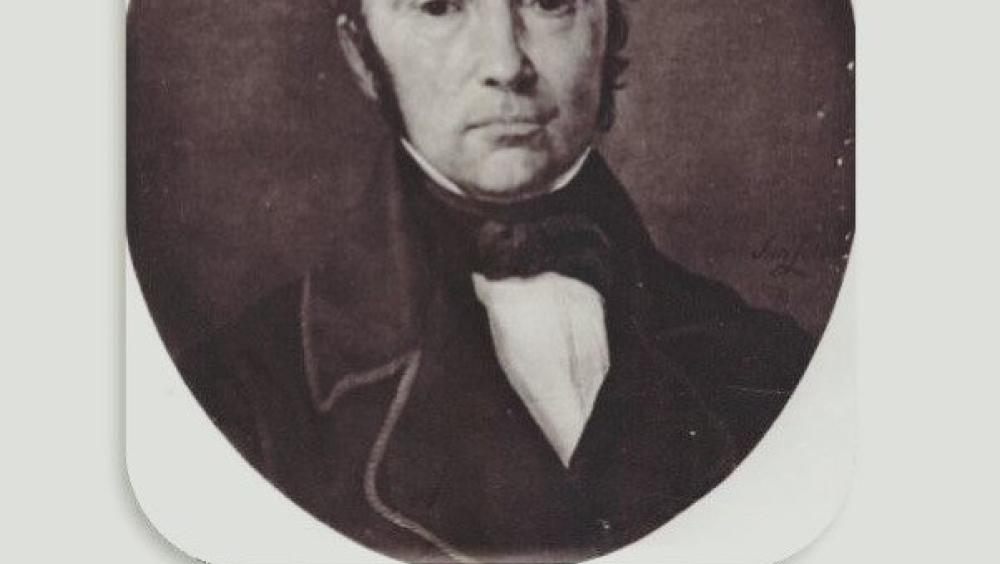Simonas Daukantas in Papilė
Simonas Daukantas was prominent Lithuanian author from 19 century. He is mostly well known for his version of Lithuanian history, that was the first local history written in local language. However, his works were not only in the subject of political and cultural history, he was also the translator, that made among others first translation of such famous book as Robinson Crusoe, besides he wrote dictionaries, ethnographic books, handbooks for farming, etc. That is really amazing and unusual: not only his wide talents and compacities to produce that much of books, but also the fact he was fixing, shifting language, he was creating new words and expressions, instead of old ones, in order to modernize language. The project invites to get to know Daukantas and small town of Papilė. For this the city game is going to be created, that is going to help players to get to know the town and life of the writer . It starts from participants of the game forming teams of 5 people or so. They get short quiz, that determents who would be first to start the game. Each team is given first clue, that should lead them to the next object, where they will find another clue. The aim of the game is to find all clues as fast as possible, and the first team to do so wins.
Simonas Daukantas was prominent Lithuanian author from 19 century. He is mostly well known for his version of Lithuanian history, that was the first local history written in local language. However, his works were not only in the subject of political and cultural history, he was also the translator, that made among others first translation of such famous book as Robinson Crusoe, besides he wrote dictionaries, ethnographic books, handbooks for farming, etc. That is really amazing and unusual: not only his wide talents and compacities to produce that much of books, but also the fact he was fixing, shifting language, he was creating new words and expressions, instead of old ones, in order to modernize language.
The life story of Daukantas is truly impressive as well. He was born in farmers family, his parents were nowhere near rich and although they could read and write, had no traditions of sending someone to university. Simonas himself decided he wants to get educated and went to Vilnius university-very unusual decision for someone from his background, as majority, or almost hundred percent of graduates in university were from nobility. That situation didn't stop him, and he went literary on his feet to Vilnius, that was few hundred kilometers away on feet with very few moneys in his pockets. As his education to enter university wasn’t enough, he had first to enroll to gymnasium, in order to be able to enter University. His years in university were difficult, as he had to work to support himself to be able to study, as his family had no funds to support him. Despite all the hardships he graduated with his results being best among his colleagues. Also, it took a while to get his diploma, as he had first to prove his noble birth. After graduation, he went to look for job, that could allow him to get hold of old documents in order to make his research and write his books, and he find this opportunity in working in state archive for Senate. At day time he would do his archivist duties, and after work he would research documents and write his magnus opus-Lithuanian history. Not only it was tiering-to do two jobs, not to mention wet and could ambient, that would lead to health deterioration, but also really dangerous- it was forbidden by tsarist Russia officials (at that time Lithuanian territory was occupied by Russia) to write local history at all, especially so for him, as he was at state service. Despite all the hardships, he managed to write the book and also many others, but he had to leave his service due to worsening health conditions. After retiring, he had to live with other people, as all his salary and latter pension he would spend on publishing his books. Living with other people weren't easy and he had to change places often. He come to Papilė at 1861, already really poor health and lived here until his death in 1864.
The project invites to get to know Daukantas and small town of Papilė. For this the city game is going to be created, that is going to help players to get to know the town and life of the writer . It starts from participants of the game forming teams of 5 people or so. They get short quiz, that determents who would be first to start the game. Each team is given first clue, that should lead them to the next object, where they will find another clue. The aim of the game is to find all clues as fast as possible, and the first team to do so wins.
Simonas Daukantas was erudite, who not only spoke many languages but he also translated many works into Lithuanian language and created dictionaries. This way he was bringing European dimension to local level. On the other hand, he was actively inventing new words, translating international concepts and phrases into local language. The route itself will be translated into other languages and integrated into tourists routes, passing this region. The game is speaking about common European values, that translate into any language-importance of education, mixes of cultures, perseverance, open mindness.
